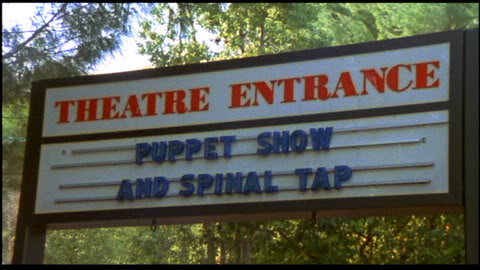Do Your Value Propositions “Go To Eleven”?
In Rob Reiner’s 1984 “rockumentary,” This Is Spinal Tap, one of the main characters, Nigel Tufnel, proclaims that they are different than other bands because their amplifiers “go to ll.” (You have to watch this clip if you don't know what I am talking about).
What a perfect analog of how B2B companies are trying to differentiate themselves today. I have the opportunity to work with sales and marketing professionals on the topic of competitive preference, and here are some actual quotes from vendors about how they think they separate themselves from “other blokes”:
- “But we are truly global and our competitors are not” – a managed services provider
- “We are much more scalable than them” – a software provider
- “We deliver our services in the cloud” – a software-as-a-service provider
Translation? “These go to 11.”
You know the show MythBusters?
Forrester’s Sales Enablement team is testing the conventional wisdoms of sales and marketing by asking executive level buyers what they think.
So, does “11” differentiate you? No.
According to our study, executives find vendors who match the right combination of capabilities to their given situation to be the most differentiated, with those aligned to help them realize a business result at number two. Taken together, 53% of these executives find things that are fundamental to any professional selling course to be more differentiating than any other attribute, including their products and services, their branding, or their customer services.
Said a different way, how you sell is as important as what you sell.
To further highlight this issue – when we asked the same buying executives how well prepared salespeople were for their first meetings, they told us:
- 88% were usually knowledgeable about their (the vendor's) products and services.
- 55% usually had industry knowledge.
- 34% felt salespeople usually understood the executive's role and responsibility in the organization.
- 29% believed salespeople understood their business (executive's business) and how they (the vendor) could help.
This data is clearly a testament to what you are preparing your salespeople to do (with how you measure them, manage them, train them, and equip them).
 Toward the end of This is Spinal Tap, the band has a new manager and they are playing a gig at an amusement park, where the marquee lists them first before a puppet show. The manager says, “If I told them once, I told them 1,000 times – Spinal Tap first, then puppet show.”
Toward the end of This is Spinal Tap, the band has a new manager and they are playing a gig at an amusement park, where the marquee lists them first before a puppet show. The manager says, “If I told them once, I told them 1,000 times – Spinal Tap first, then puppet show.”
Obviously, she’s missing the bigger picture – but your company is, too, if you are working off of a standard checklist and unknowingly contributing to the ever-growing list of random acts of sales support, or certifying your sales force on how well their know their products.
Many companies today realize the status quo is untenable, and most are beginning to invest in more holistic approaches (no, not the Seinfeld holistic healer) that focus first on adding value to customers and then on determining ways to systematize their go-to-market models from there.
Shameless plug 3: Read “Engineering Valuable Sales Conversations”